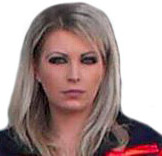Homemade recipes against hair loss: what to use to stop it?
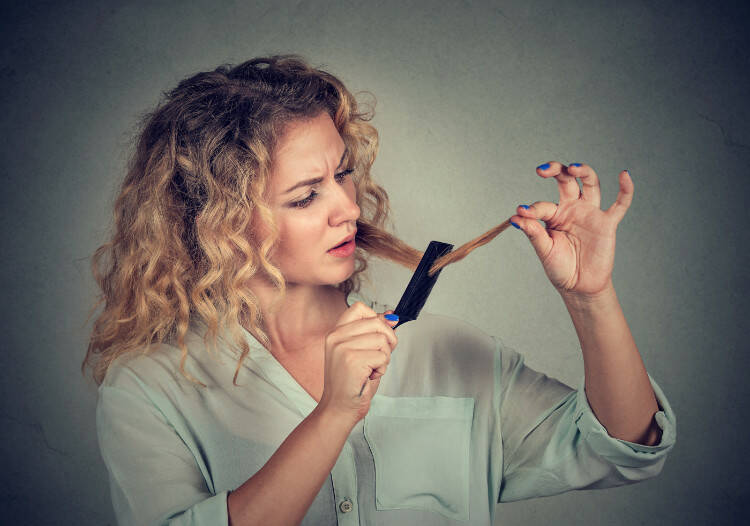
Is your hair falling out more than normal? Have you tried almost all the available hair products? Don't despair!
Article content
Their empiricism has been handed down from generation to generation. Here are some of them.
How about betting on nature? The healing and supportive effects of certain plants can sometimes come as a surprise.
Despite rapid modernisation, drawing on and using the gifts of nature is still very popular and effective for many problems and ailments.
There are plants that have been proven to have a positive effect on hair regeneration, blood circulation to the scalp and thus reduce hair loss. In addition, they strengthen them and prevent breakage. Try some of these homemade recipes of ours and see the positive effect for yourself.
Hair loss
Hair loss can safely be called a global problem of the entire population. It affects a huge number of people all over the world, regardless of whether you are a man or a woman.
Sparse and damaged hair fibers have many causes.
It is an imbalance between hair growth and hair fall (an adult has an average of 100,000 to 200,000 hairs). The worst and most difficult to manage causes are genetic, causing irreversible changes with damage to the hair follicle.
The less serious etiology of the occurrence is one that is known to us and reversible. In most cases, it is a deficiency of fluids, vitamins or minerals.
By replenishing these with subsequent nourishment of the hair, we can achieve its regrowth and original strength.
However, a lot of patience is needed, as this is a longer-term process. Beautiful, healthy hair cannot be achieved in a few days and this is something to be reckoned with.
Causes of hair loss
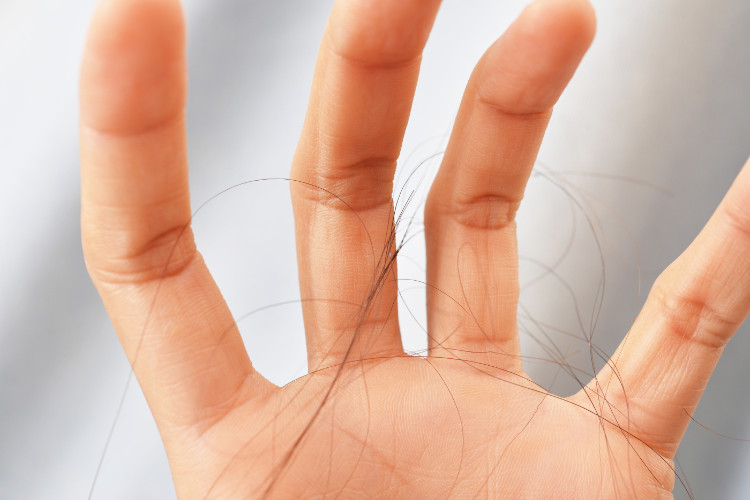
The quality of hair is just an indication of the overall condition of the body. When we are plagued by an illness, have a stressful time in life or are not exactly an example of a person with a healthy lifestyle, all of these things affect us. Even if not immediately, it will definitely show up somewhere later on.
New disease processes can appear based on a lack of certain substances, lowered immunity, sleep disorders and the aforementioned hair loss.
The most common diseases that affect and cause thinning hair include diseases of the bloodstream (disorders of circulation and blood supply to the scalp), kidneys, thyroid, parathyroid, liver (cirrhosis, hepatitis), pancreas (diabetes). Skin diseases are a special category.
The main representative in this category is psoriasis, atopic or other types of dermatitis, seborrhoea, other bacterial and fungal skin diseases, pyoderma, impetigo in children, shingles.
The substances whose deficiency causes hair loss include mainly vitamins of group B, C, D and H. It also occurs with deficiency of iron, zinc, magnesium, selenium, iodine, folic acid, coenzyme Q10, omega-3 fatty acids or protein deficiency.
The most common cause, which is predetermined, is heredity. This is a difficult factor to control and hair loss cannot be stopped and the only option, if we cannot accept this fact, is a hair transplant.
Types of alopecia (baldness) include:
- localized alopecia - localized circumscribed baldness
- Androgenetic alopecia - hormone-mediated baldness
- senile alopecia - age-related baldness (irreversible)
- mechanical alopecia - baldness due to mechanical irritation (hats, helmets)
- anagen effluvium - disruption of the anagen (growth) phase (stress, poisoning...)
- telogen effluvium - shortening of the anagen (growth) phase and rapid transition to the telogen (resting) phase
Examination of the hair follicle
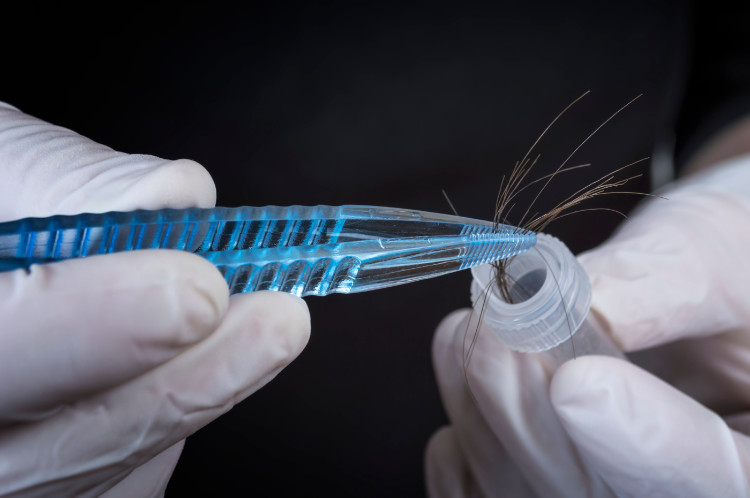
Before you purchase a number of commercial anti-hair loss or accelerated hair growth products, you should know 100% the cause of your hair loss.
The study of the hair, the hair follicle, the scalp and the problems associated with them is dealt with by the special science of trichology.
It was created by combining and using expertise from clinical dermatology, pathological anatomy, genetics, biology, chemistry and cosmetology.
A trichlogy examination guarantees an accurate diagnosis of your problem using a micro-camera and processing the data collected.
The condition of the hair structure, hair follicle, scalp is assessed. Hair density calculation, hair diameter measurement, hair phase analysis and determination of the cause and type of alopecia are done.
Only with the knowledge of the true cause can the correct treatment begin.
Home recipes in the fight against hair fall
Among the causes of alopecia, in addition to the above-mentioned disease causes, there are usually insufficient drinking, poor eating habits or lack of certain vitamins, minerals and proteins.
In most cases, hair loss is one of the symptoms of an overall organism disorder. Therefore, we should address it as a whole, and not just focus on the hair, but on the whole organism.
Drinking regime
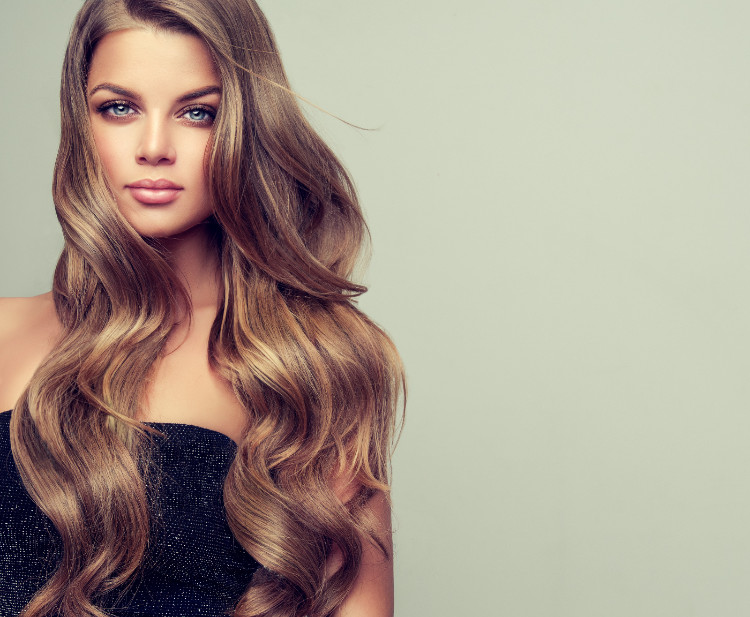
Hair is like a flower. If we stop watering it from the inside, it dries up and dies. Even hair needs water to grow properly.
It may sound like a cliché to some and seem strange to you, but sufficient fluid intake is very important for proper and healthy hair growth.
Dehydration of the body causes many problems and one of them is excessive dryness of the hair fiber, increased hair breakage and slowed hair growth.
The breakage is faster than the growth itself, which is why we often see our hair getting shorter over a longer period of time and not growing to the desired length.
A balanced diet
A balanced diet with sufficient vitamins and minerals is important for the proper functioning of a person, his organs and organ processes.
A lack of these substances, on the other hand, causes problems with the immune system, frequent relapses of diseases and improper functioning of the whole organism.
All this also affects hair and its growth. Therefore, we should pay increased attention to a diet rich in vitamins. Most of them, of course, can be found in fruits and vegetables.
If we have an increased deficiency of a particular vitamin or other substance, we can also ensure its increased supply in tablet form. In every pharmacy we can find a large number of vitamin supplements.
Foods necessary for proper hair growth:
- red meat - it is the healthiest and contains a lot of protein needed for the development of new hair
- fish (salmon) - together with seafood, it contains a lot of selenium and protein
- whole grain foods
- low-fat proteins - contain proteins important for proper hair development
- avocados - a wide range of vitamins promote new hair growth
- strawberries - contain the most vitamin C
- spinach - important for its high iron and folic acid content
- broccoli - contains lots of iron and folic acid
- Brussels sprouts - contain folic acid
- fluids - drinking promotes hair growth
- green tea - contains substances and vitamins important for proper hair growth
- aloe vera - a medicinal plant with antioxidant properties
Replenishing missing substances

B Vitamins - the B group of vitamins includes vitamins B1, B2, B3, B5, B6, B7, B9 and vitamin B12. They are characterized by their strong action for bone, hair and nail growth.
They have a positive effect on the overall metabolism of the body and support vital processes in the body. Each of these vitamins has its own specific importance, but they are nevertheless recommended to be taken together.
B vitamins are also known as B complex.
Vitamin B2 is also called riboflavin. It plays an important role in the synthesis of sugars and proteins. Therefore, its significant deficiency causes excessive hair loss.
Vitamin B3 (niacin) is also an important element in hair growth, repair and regeneration. Its deficiency causes hair fall, thinning, loss of strength and overall volume.
Hair looks tired, broken and frayed.
Vitamin B5 (pantothenic) is included in most hair care products. Its excessive deficiency irritates the scalp and causes excessive hair loss.
They keep the hair strong and firm, ensuring long lasting hair shine.
Vitamin B6 does not directly act on hair growth. Yet it helps maintain healthy skin and therefore scalp. It circulates blood and thus promotes healthy hair growth secondarily.
Vitamin B6 deficiency causes skin inflammation and eczema, which in turn causes slower hair growth, hair loss and thinning.
Vitamin B7 is also known as biotin. It is one of the essential ingredients that promote hair growth. It promotes the production of essential fatty acids and cell growth.
People usually do not suffer from a deficiency of this vitamin. But if they happen to have this problem, it results in slower growth, reduced quality and excessive hair loss.
Vitamin H has an irreplaceable effect on the healthy development of skin, mucous membranes, nails and hair. This vitamin is found in every cell of our body.
Its deficiency is very unlikely, but can occur with frequent or chronic infections and long-term use of antibiotics.
Its possible deficiency causes excessive dryness of the skin, cornification of surface epithelial cells, scaly skin, excessive dryness, brittleness and breakage of hair and nails.
A source of vitamin H is, for example, oatmeal.
Vitamin B9 (folic acid) is essential and irreplaceable for the synthesis, repair and utilization of DNA. It ensures the multiplication (division) of cells, i.e. their growth and renewal throughout the body.
Its deficiency impairs basic cellular processes, which in turn leads to apoptosis (natural cell death).
This process causes damage to tissues including the skin and scalp, ultimately leading to damage to the hair follicle and hair loss. Its deficiency, among other things, leads to impairment of organ functions in a broader spectrum.
Vitamin B12 has almost identical effects to vitamin B6. It also does not act directly on hair, but affects cell metabolism and thus important processes in the body. Ultimately, this process also affects hair, nail or bone growth.
Therefore, its deficiency can also cause hair loss.
Vitamin C has a positive effect on the formation of new tissue cells. Its deficiency results in diseases and sensitivity of the skin and mucous membranes. A lack of collagen causes poor development of the skin, hair and also nails and cartilage.
Vitamin D can be produced in certain amounts by our body from sunlight, which promotes its synthesis, especially in the summer months. It is important for the proper absorption of calcium and phosphorus.
It affects the proper development of teeth, bones, hair and nails.
Its deficiency causes softening of bones, decay and loss of teeth, excessive brittleness of hair and nails. It affects the proper development of the skin and hair follicle, resulting in proper and healthy hair and hair growth.
Iron (Fe) - its deficiency causes a wide range of diseases. Most of the time its deficiency is associated with anemia or malnutrition.
It causes general weakness, fatigue, decreased physical activity, weak bones, hair and nails.
Its deficiency is mainly suffered by pregnant women as a complication of pregnancy and socially weak people who do not have the option of a diet rich in vitamins and necessary substances.
Women are mainly at risk not only during pregnancy but also during menstruation, where they lose iron with blood loss. People after serious injuries and operations with blood loss are also at risk.
Hair fall and hair loss associated with iron deficiency belongs to a group of hair diseases called telogen effluvium.
Zinc (Zn) is a trace element involved in diverse processes of the body. Its deficiency in the body results in an overall weakening of the hair fibers.
A weakened hair fiber tends to prematurely detach from the hair follicle and fall out. When zinc is not replenished, hair falls out and thins.
Its deficiency is usually associated with stress and concurrent disease.
Magnesium (Mg) is found, for example, in spinach or sesame. Its deficiency adversely affects blood circulation and results in cardiovascular disease.
Deficiencies in circulation also affect the blood supply to the scalp and thus affect - albeit secondarily - hair growth and healthy hair structure.
With proper blood circulation, the hair receives sufficient nutrients. With insufficient blood circulation, the hair is insufficiently nourished, dries out, breaks and falls out.
Selenium (Se) is found in corn, pork and veal, fish, seafood, nuts and mushrooms. A deficiency of selenium results in hair loss. Paradoxically, an excess of selenium causes the same problem.
When taking selenium, care must be taken to ensure a balanced intake!
Omega-3 fatty acids are most abundant in flaxseeds, nuts, avocados, cereals and soya. They are anti-inflammatory and an important antioxidant.
They are of great importance in the treatment of hair loss because of their ability to open and stimulate hair follicles. Thus, they promote the growth of new hair and accelerate the growth of old hair while regenerating old hair.
Their sufficient intake accelerates hair growth. Their anti-inflammatory effects have also proved useful in the treatment of skin and scalp damaged by inflammation.
Decoctions for hair from herbs

Decoctions made from herbs have been used since time immemorial to treat various ailments. In the ancient past, people have used the medicinal effects of herbs to treat many ailments.
They used to extract a decoction from the plants and drink it or even apply it to painful, inflamed and injured areas of the body.
Our ancestors possessed an admirable knowledge, which is sometimes shaken by today's experts. They were equally familiar with the effects of plants and the diseases they could be used for.
Some ancient treatments are still used today.
Nettle decoction has many healing effects. As far as the hair is concerned, the first thing to mention is its supportive effect on the cardiovascular system. This ensures adequate blood supply to the scalp.
Good circulation increases the activity of the hair follicles, in which hair is formed. This stimulates the formation of the hair fibre and accelerates the growth of new and healthy hair, naturally preventing hair loss.
The hair is regenerated and visibly strengthened. For this reason, many shampoos and tonics also contain an extract of this plant. It contains vitamin A, B, C, magnesium, iron and other supporting substances.
Not only will your mood improve with surprisingly positive results, but also the hormone happiness (serotonin), which is also contained in nettles.
Green tea decoction is mainly known for its use in various diets, as it is a good fat burner. However, it also contains a large number of substances that help against hair loss.
It can also be called a B complex because of the wide range of B vitamins, namely B1, B2, B3, B7, but also vitamin C, E and K. Of the minerals, it is mainly magnesium, iron and zinc, which are important in the regeneration of both the body and the hair follicle and support the growth and proper development of hair.
Another ingredient is caffeine, which, when used topically, has a stimulating effect on the hair follicles and scalp. It circulates the blood in the skin, thus activating further hair growth.
Beer hair wrap and the positive effects of beer have been known for decades.
Beer works when applied to the entire length of the hair from roots to ends. The most intense effect has been observed with dark beer, which, however, can change the tone of hair colour in blondes.
Its use is recommended for brunettes and women with dark hair. Blondes, don't despair - light lager is most effective on blonde hair.
Beer and its effects on hair growth and hair fall prevention were used by our grandmothers and they probably knew why. It is used before shampooing as a restorative wrap.
If you're dreading the smell of beer, hopefully you'll be reassured to know that the beer smell will quickly fade from your hair. Also, a few drops of lemon can be added to the beer wrap to eliminate unwanted odors.
It contains high amounts of proteins, nucleic acids, carbohydrates and lipids. About 6 to 9% of beer is made up of nitrogenous substances, polyphenolic substances, hops, glycerol, fats and vitamins.
In addition, it has plenty of calcium, magnesium, and a wide range of B vitamins important for proper hair and nail growth.
Burdock decoction and burdock is a very difficult plant to confuse precisely because of its ground growth and the gigantic appearance of burdock leaves.
Burdock is still used in hair cosmetics today. A large number of these products describe it by its Latin name. Therefore, many people do not know that overpriced shampoo does not actually contain any miracle, just a decoction or tincture obtained from the burdock leaf.
Burdock leaves are a source of proteins, inulin, polysaccharides, essential oil, arcinogen glycoside, resin, palmitic and stearic acids, fats, sulphates and phosphates, calcium, potassium, magnesium and ascorbic acid.
Beneficial effects of oils
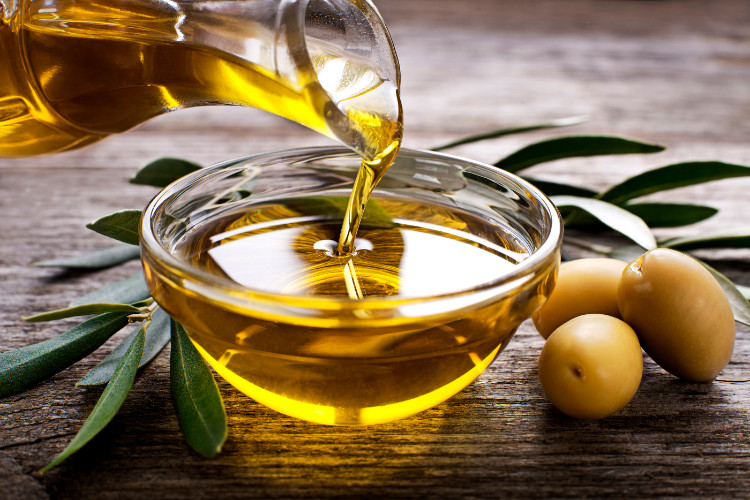
Oil packs or masks have unmistakable beneficial effects on the hair and scalp.
They are mainly recommended for people who have dry and brittle hair or damaged and frayed ends. Oils and their ingredients nourish the hair, lubricate the dry parts of the hair especially when it is chemically damaged by dyeing, bleaching or perming or blow-drying and ironing.
Some are recommended to be rubbed into the scalp, except for oily hair, as they have healing and curative effects for skin diseases caused by bacteria or fungi.
For severely oily hair, oils should only be rubbed on the dry parts and on the ends. However, when choosing the right oil, care should be taken to ensure that they are 100% natural with no added parabens, dyes or other artificial substances.
Cold-pressed and unrefined oils are best. This way they retain the necessary vitamins and minerals needed to properly treat and nourish the hair.
Caution: natural oils and products with an oil composition should preferably be applied to dry areas of the hair (chemically or mechanically damaged and frayed ends).
They are not recommended for regular or increased use in people with hair prone to matting.
Their use and application to the roots depends on the hair typology.
For oily hair, argan oil is best suited, as it does not grease and weigh down the hair and scalp.
Castor oil is known for its wide range of uses, not just for cosmetic purposes. For hair treatments, Jamaican black castor oil is the most effective.
It stimulates the growth of new hair, strengthens, regenerates, nourishes and moisturizes. Hair is thicker, stronger, whiter and less brittle.
It stops excessive hair loss. It is also used for alopecia caused by skin inflammation of the hair, which it also cures. It also has a preventive effect in this respect.
It soothes and nourishes the dry scalp and prevents the formation of dandruff. As well as the hair, it has a supportive effect on the eyelashes, which become richer, thicker and longer with repeated use.
Hemp oil is suitable for the regeneration of hair damaged and tired chemically and mechanically.
It promotes the formation of new hair fibers and prevents excessive hair loss. It contains most of the substances that are indispensable for proper hair growth, such as vitamins A, B, C, A, iron, magnesium, zinc, omega-3 fatty acids.
It also helps in the treatment of scalp diseases with its healing and anti-inflammatory effects.
Coconut oil, like castor or hemp oil, stimulates the growth and formation of new hair. It regenerates those that are dry and damaged.
With regular use, the hair is stronger, thicker, looks healthy and has a beautiful shine. Its advantage over the other oils already mentioned is that it penetrates deeper into the hair around the cuticle.
This means that the hair is regenerated right from the inside.
Olive oil is another miracle promoting new hair growth (actively stimulates hair follicles) and preventing old hair loss (hydration, regeneration, improvement of hair structure).
It contains vitamins B and D, which are the most indispensable of all vitamins in the care of healthy hair and nails. Its advantage is its easy availability (food industry) and low price.
Argan oil is an extra virgin oil pressed from the fruit of the argan nut. It is also called Moroccan or liquid gold for its powerful regenerative effects on the skin hair and nails.
It is anti-inflammatory and antibacterial on the skin. Therefore, it is suitable for treating the scalp for various inflammatory processes caused by bacteria and fungi.
It promotes hair growth by nourishing the hair fibre and preventing hair fall. It strengthens and regenerates the hair. Its advantage is that it does not thicken the hair as much as other oils.
Elimination of stress and treatment of disease conditions
The danger of stress lies precisely in underestimating its consequences. It is stress that causes and accelerates certain disease processes in the body, aggravating and prolonging their course, treatment and recovery.
Stress causes an overall negative state of the organism, sleep disorders and immunity disorders. One of its manifestations is also excessive hair loss and thinning.
It is extremely important to eliminate this unwanted factor as soon as possible, as its persistence will prevent us from regenerating and growing new healthy hair despite thorough care.
The most famous homemade masks
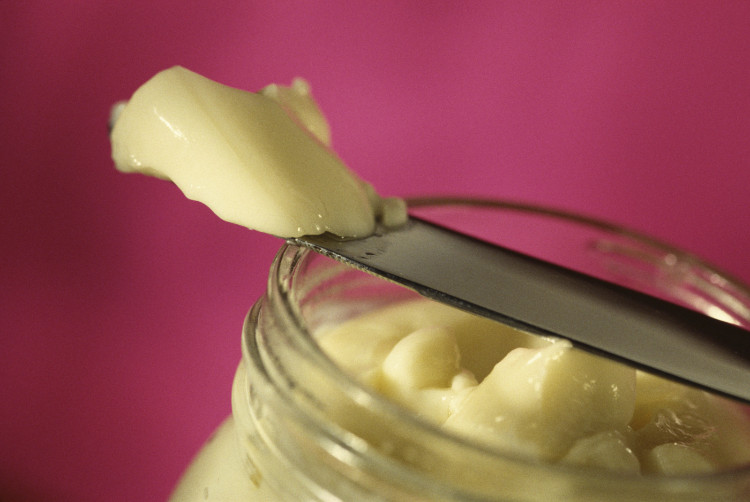
The table below describes the most well-known hair masks. Their effect is multiplied if the hair is wrapped in food-safe foil and then in a towel.
It is a good idea to stay in a warm room while the mask is on. The effect of heat is the highest.
The masks described below are just an example. You can of course use a food or herb to make your mask according to your current problem, depending on the quality of your hair (soft/hard - some foods soften, others strengthen and strengthen).
After the period of application, wash the mask thoroughly with lukewarm water.
| Moisturising olive mask |
|
|
| Regenerating olive mask |
|
|
| Regenerating beer mask |
|
|
| Hydrating banana mask |
|
|
| Nourishing and moisturising avocado mask |
|
|
| Brown sugar peeling mask |
|
|
| Hydrating egg mask |
|
|
| Potato mask for hair strength |
|
|
| Carrot mask for oily hair |
|
|
| Yogurt Nourishing Mask |
|
|
Related
